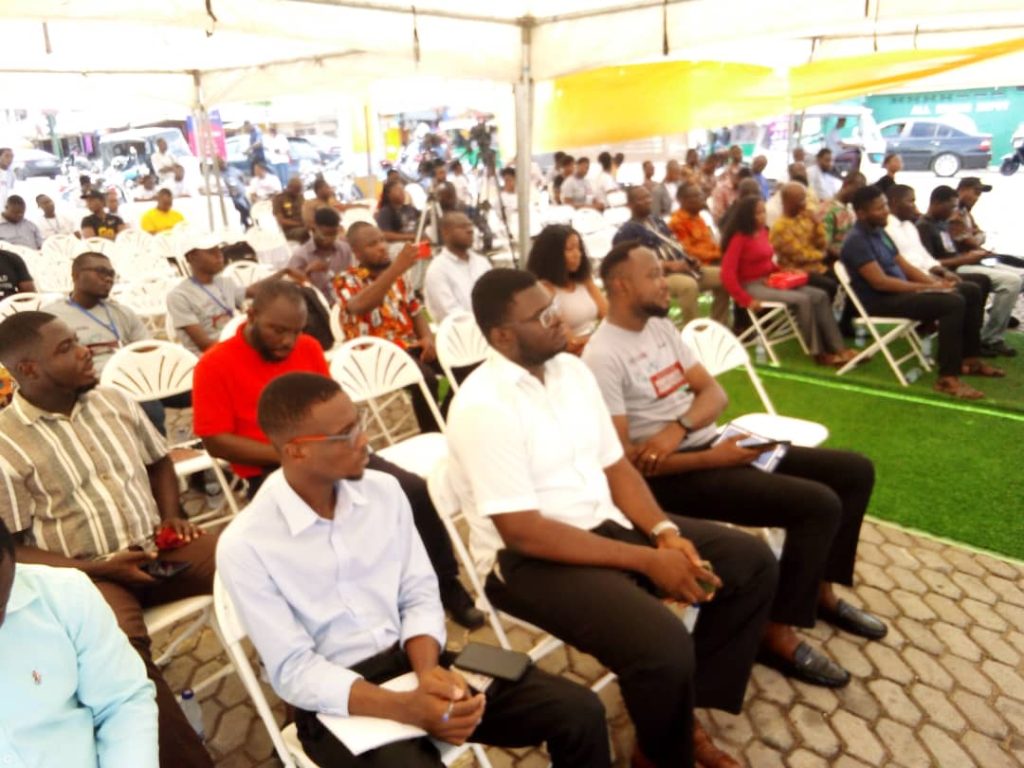By Michael Foli Jackidy
Ho (V/R), Oct. 27, GNA – Madam Serwaa Asare from the Cyber Security Authority has said the government is dedicated to building a secured digital infrastructure, to enhance the nation’s ability to detect cybercrime and strengthen cooperative efforts to prevent cyber-related losses.
She said that cybersecurity is a multidisciplinary effort requiring collaboration across all sectors.
Madam Asare made these statements during the 2024 Volta Regional Cybersecurity Awareness Month Conference themed, “Combating Misinformation and Disinformation in a Digitally Resilient Democracy: Our Collective Responsibility,” in Ho.
The conference was organised by the Genius IT Foundation, a prominent IT institution in the Volta Region, in collaboration with the Cyber Security Authority, aimed to raise awareness on IT literacy and empower citizens to recognise and combat misinformation.
She explained that both public and private institutions play a significant role in fostering a resilient digital ecosystem.
Madam Asare urged the public to remember to use the 292 short code to report any cybersecurity incidents to the Cyber Security Authority, underscoring the importance of public engagement in reporting threats.
Mr Kossi Azoumaro, an AWS Certified Solution Architect, discussed “The Role of Technology in Safeguarding Democracy: Addressing Misinformation,” highlighting that misinformation poses operational, financial, and reputational risks to individuals and organisations.
He advised the public to take steps to secure their devices from hacking, such as regularly patching systems, using strong passwords, and verifying links before clicking.
“Whenever you receive a link from someone unfamiliar, think carefully before you click,” he cautioned.
Mr Jones Tagbor, a member of the National Executive Committee of the Ghana Psychological Association, who addressed the psychological impact of misinformation and disinformation urged individuals to verify information before acting on it, particularly when it comes from social media, as misinformation often aims to trigger emotional reactions.
Mr Victor Worlanyo Gbedawo from the Department of Computer Science at Ho Technical University highlighted the strides Ghana has made in digital literacy through initiatives like the National Cyber Security Awareness Month (NCSAM) by the Cyber Security Authority.
However, he noted that a significant portion of the population, especially in rural areas, lacks reliable internet access, which hinders the development of widespread digital literacy.
Mr Gbedawo cited statistics from the Ghana Living Standards Survey (GLSS) conducted by the Ghana Statistical Service in 2018, revealing that while over 80 per cent of individuals aged 15-24 in Ghana are digitally literate, only 52 per cent of those over the age of 65 possess basic digital skills.
He stressed that misinformation often exploits emotional responses and preconceived notions, making it essential for citizens to develop critical thinking skills to assess the intent and accuracy of the information they encounter.
Mr Desmond Kitsi, the Founder and Executive Director of Genius IT Foundation, emphasised that in today’s interconnected world, cybersecurity is everyone’s responsibility.
He highlighted the Foundation’s commitment to raising awareness about cyber threats, data breaches, and disinformation and equipping communities with knowledge to protect themselves.

“Let us continue to work together to promote digital inclusiveness, cybersecurity, and socioeconomic development across Africa,” he said.
Dr Archibald Letsa, the Volta Regional Minister, in an address, commended Genius IT Foundation and the Cyber Security Authority for their impactful work.
He reflected on the transformative effects of digitalisation and the importance of staying aware of cybersecurity risks.
“Misinformation and disinformation are critical threats in our digital age,” he warned, adding that the rapid spread of false information online can have devastating consequences.
Dr Letsa advised that combating misinformation and disinformation requires a comprehensive approach, including fact-checking, media literacy, technological solutions, and sound policies and regulations.
He encouraged the public to continue fostering cybersecurity discussions, particularly in addressing misinformation, and to leverage digital platforms for positive change.
The conference featured an engaging demonstration by FUTECH Kids of Genius IT Foundation on the impact of misinformation and disinformation and methods to counter them.
The event brought together members of the public, IT experts from the region, and representatives from the Cyber Security Authority and Genius IT Foundation, reinforcing the message that cybersecurity is a shared responsibility.
GNA